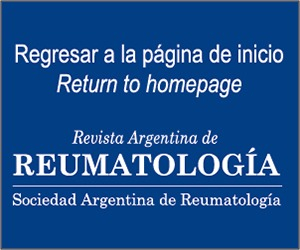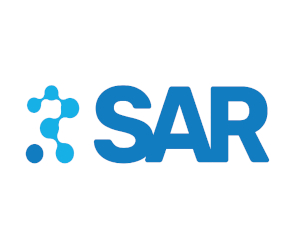Guías de recomendaciones de prevención de infecciones en pacientes que reciben modificadores de la respuesta biológica
Resumen
El creciente interés ante el uso de modificadores de la respuesta biológica, en todas las disciplinas, motivó la revisión del tema y la discusión con la comunidad científica analizando el tema. En el presente documento desarrollaremos los agentes más importantes tales como anti-TNF, anti-citoquinas, bloqueadores de la señal coestimulada, bloqueadores de las moléculas de adhesión, bloqueadores de la proliferación de linfocitos, deplecionadores de linfocitos T y B; enfocado a los cuidados, monitoreos, quimioprofilaxis y vacunación necesaria ante cada agente en especial para evitar infecciones en este grupo de pacientes.Citas
I. Hansel TH, Kropshofer H, Singer T, et al. The safety and side effects of monoclonal antibodies. Nature. 2010; 9:325-38.
II. Koo S, Marty FM and Baden LR. Infectious Com-plications Associated with Immunomodulating Biologic Agents. Hematol Oncol Clin N Am 2011; 25:117-38.
III. Saketkoo LA, Espinoza LR. Impact of Biologic Agents on Infectious Diseases. Infect Dis Clin N Am 2006; 20:931-61.
IV. Khanna D, Mc Mahon M and Furst D E. Safety of Tumour Necrosis Factor-alfa Antagonist. Drug Safety 2004; 27:308-21.
V. Garcia JM, Moya L. Complicaciones infecciosas asociadas al uso de fármacos antagonistas del factor de necrosis tumoral: Revisión de conjunto. Enferm Infecc Microbiol Clin 2005; 23:551-9.
VI. Mariette X, Gottenberg J-E, Ravaud P, et al. Re-gistries in rheumatoid arthritis and autoimmune diseases: data from the French registries. Rheuma-tology 2011; 50:222-29.
VII. Lawrance I, Radford-Smith G, Bamton P, et al. Se-rius infections in patients with inflammatory bowel disease receiving anti-tumor-necrosis-factor-alpha therapy: An Australian and New Zealand experien-ce. Gastroenterol and Hepatol 2010; 25:1732-8.
VIII. Dommasch ED, Abuabara K, Shin DB. The risk of infection and malignancy with tumor necrosis factor antagonists in adults with psoriastic disease: A systematic rewiew and meta-analysis of rando-mized control trials. J Am Acad Dermatol 2011; 64:1035-50.
IX. Orlando A, Armuzzi A, Papi C, et al. The Italian Society of Gastroenterology and the Italian Group for the study of Inflammatory Bowel Disease Cli-nical Practice Guidelines: The use of tumor necrosis factor-alpha antagonist therapy in Inflammatory Bowel Disease. Digestive and Liver Disease 2011; 43:1-20.
X. Galloway JB, Hyrich KL, Mercer LK, et al. Anti-TNF therapy is associated with an increased risk of serious infections in patients with rheumatoid ar-thritis especially in the first 6 months of treatment: updated results from the British Society for Rheu-matology Biologics Register with special emphasis on risks in the elderly. Reumatology 2011; 50:124-31.
XI. De la Vega M. Primer reporte de eventos adversos de tratamientos biológicos en la Argentina. Infor-me de Registro BIOBADASAR. Rev Arg Reumatol 2011; 22:40-54.
XII. Garcia-Vidal C, Rodriguez-Fernandez S, Teijon S, et al. Risk factor for opportunistic infections in Infliximab treatment patients importance of scree-ning in prevention. Eur J Clin Microbiol Infect Dis 2009; 28:331-3.
XIII. Fessler BJ. Infectious diseases in systemic lupus erythematosus: risk factors, management and pro-phylaxis. Best Pract Res Clin Rheumatol. 2002; 16:281-91.
XIV. C aporali R, Caprioli M, Bobbio-Pallavicini F, Montecucco C. DMARDS and infections in rheu-matoid arthritis. Autoimmun Rev. 2008; 8:139-43.
XV. Furst DE. The risk of infections with biologic the-rapies for rheumatoid arthritis. Semin Arthritis Rheum. 2010; 39:327-46.
XVI. Askling J, Fored CM, Brandt L, et al. Risk and case characteristics of tuberculosis in rheumatoid arthritis associated with tumor necrosis factor antagonists in Sweden. Arthritis Rheum 2005; 52:1986-92.
XVII. Mladenovic V, Domljan Z, Rozman B, et al. Infec-tion in patients with rheumatoid arthritis and the effect of infliximab therapy. Arthritis Rheum 2004; 50:372-9.
XVIII. Carmona L, Hernández-García C, Vadillo C, et al. Increased risk of tuberculosis in patients with rheu-matoid arthritis. J Rheumatol 2003; 30:1436-9.
XIX. D ixon WG, Hyrich KL, Watson KD, et al. Drug-specific risk of tuberculosis in patients with rheumatoid arthritis treated with anti-TNF therapy: results from the British Society for Rheu-matology Biologics Register (BSRBR).Ann Rheum Dis. 2010; 69:522-8.
XX. Iseman MD Mycobacterial infections in the era of modern biologic agents. Am J Med Sci. 2011; 341:278-80.
XXI. Wallis RS, Broder MS, Wong JY, et al. Granulo-matous infectious diseases associated with tumor necrosis factor antagonists. Clin Infect Dis. 2004; 38:1261-5.
XXII. Melboucy-Belkhir S, Flexor G, Stirnemann J, et al. Prolonged paradoxical response to anti-tubercu-lous treatment after infliximab. Int J Infectious Dis 2010, 14s:333-4.
XXIII. Winthrop KL, ChangE, Yamashita S, et al. Nontu-berculous mycobacteria infections and anti-Tumor Necrosis Factor-terapy. Emerg Infect Dis 2009; 2009; 15:1556-61.
XXIV. Besada E. Rapid growing mycobacteria and TNFα blockers: case report of fatal lung infection with Mycobacterium abscessus in a patient treated with infliximab, and literature review. Clin Exp Rheu-matol 2011; 29:705-7.
XXV. Kesteman T, Yombi JC, Gigi J, Durez P. Listeria infections associated with infliximab: case reports. Clin Rheumatol. 2007; 26:2173-5.
XXVI. Slifman NR, Gershon SK, Lee JH, Edwards ET, Braun MM. Listeria monocytogenes infection as a complication of treatment with tumor necrosis factor alpha-neutralizing agents. Arthritis Rheum. 2003; 48:319-24.
XXVII. P eña-Sagredo JL, Hernández MV, Fernandez-Llanio N, et al. Listeria monocytogenes infection in patients with rheumatic diseases on TNF-alpha antagonist therapy: the Spanish Study Group expe-rience. Clin Exp Rheumatol. 2008; 26:854-9.
Derechos de autor 2014 Revista Argentina de Reumatología

Esta obra está bajo licencia internacional Creative Commons Reconocimiento-NoComercial-SinObrasDerivadas 4.0.






